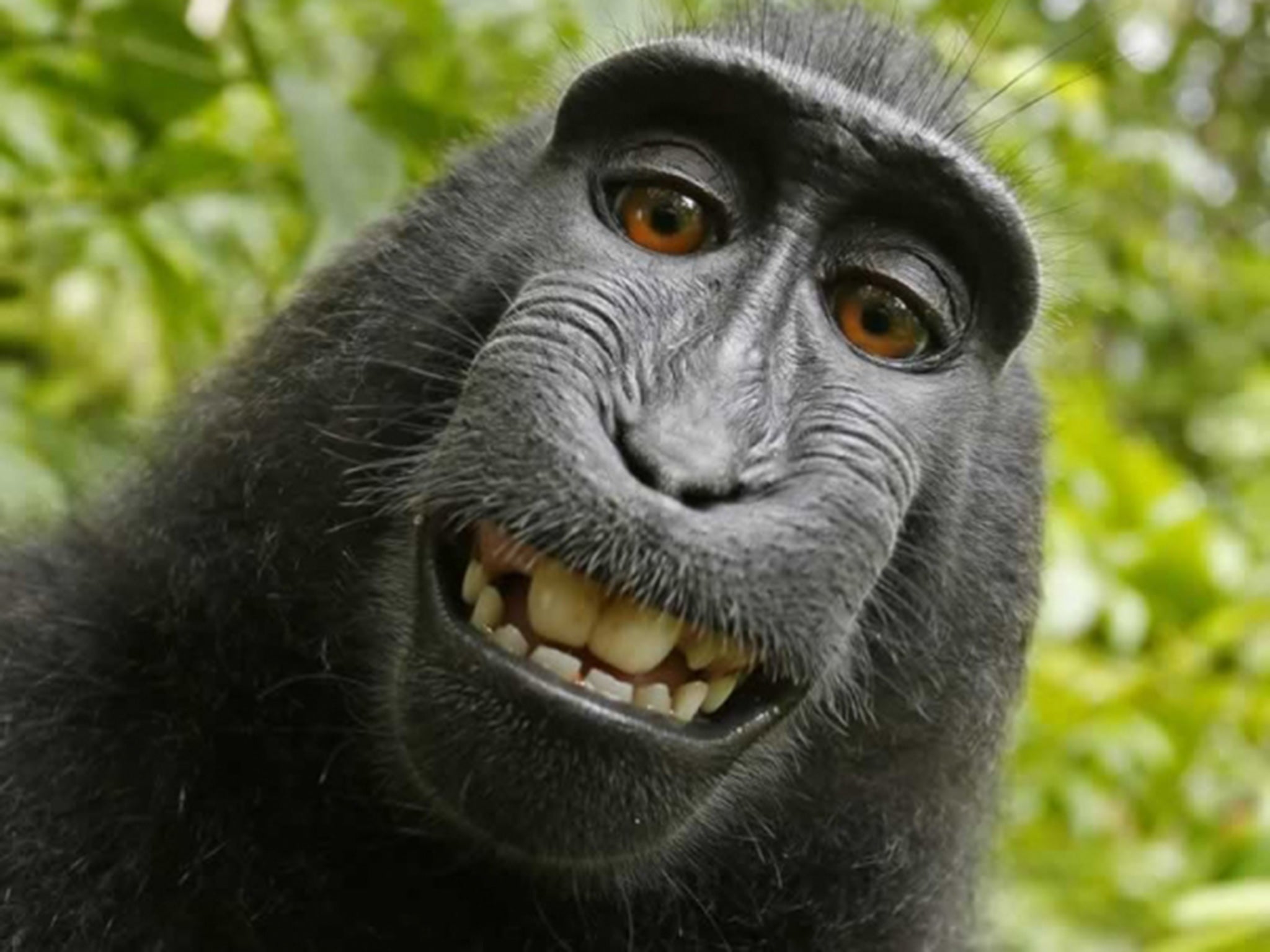Monkey selfie: Judge rules macaque who took grinning photograph of himself 'cannot own copyright'
Naruto, a six-year-old rare crested macaque, took the selfie in the Tangkoko Reserve in Indonesia

A monkey who took a grinning "selfie" with a photographer's camera while he wasn't looking has been deemed ineligible to hold copyright over the image.
The instantly recognisable snapshot made headlines around the globe, not only for its obvious quirky appeal but because it sparked an unusual lawsuit.
Animal rights activists claimed that Naruto, the six-year-old rare crested macaque who lives free in the Tangkoko Reserve on the Indonesian island of Sulawesi, had the right "right to own and benefit from the copyright ... in the same manner and to the same extent as any other author".
He took the shot, and several others, in 2011 after British photographer David Slater left his camera unattended.
Peta (People for the Ethical Treatment of Animals) filed legal proceedings in the US District Court in San Francisco, stating the so-called "monkey selfies"came from "a series of purposeful and voluntary actions by Naruto, unaided by Slater."
They were seeking a court order allowing Peta to administer all proceeds from the photos for the benefit of the monkey.
But now a federal judge has ruled that while the protection of law can be extended to animals if agreed by Congress or the US President, there was no indication that it this applies to the Copyright Act, as reported by the Guardian.
US district Judge William Orrick said Wednesday that the monkey cannot be declared the copyright owner of the photos.
Mr Slater had asked the court to dismiss the case, and said the British copyright obtained by his company, Wildlife Personalities Ltd., should be honored worldwide - after the images were widely circulated, including on Wikipedia.
He described himself as "rather bemused and persecuted" by the lawsuit, and raised conjecture that it may have been a publicity stunt.
Join our commenting forum
Join thought-provoking conversations, follow other Independent readers and see their replies
Comments